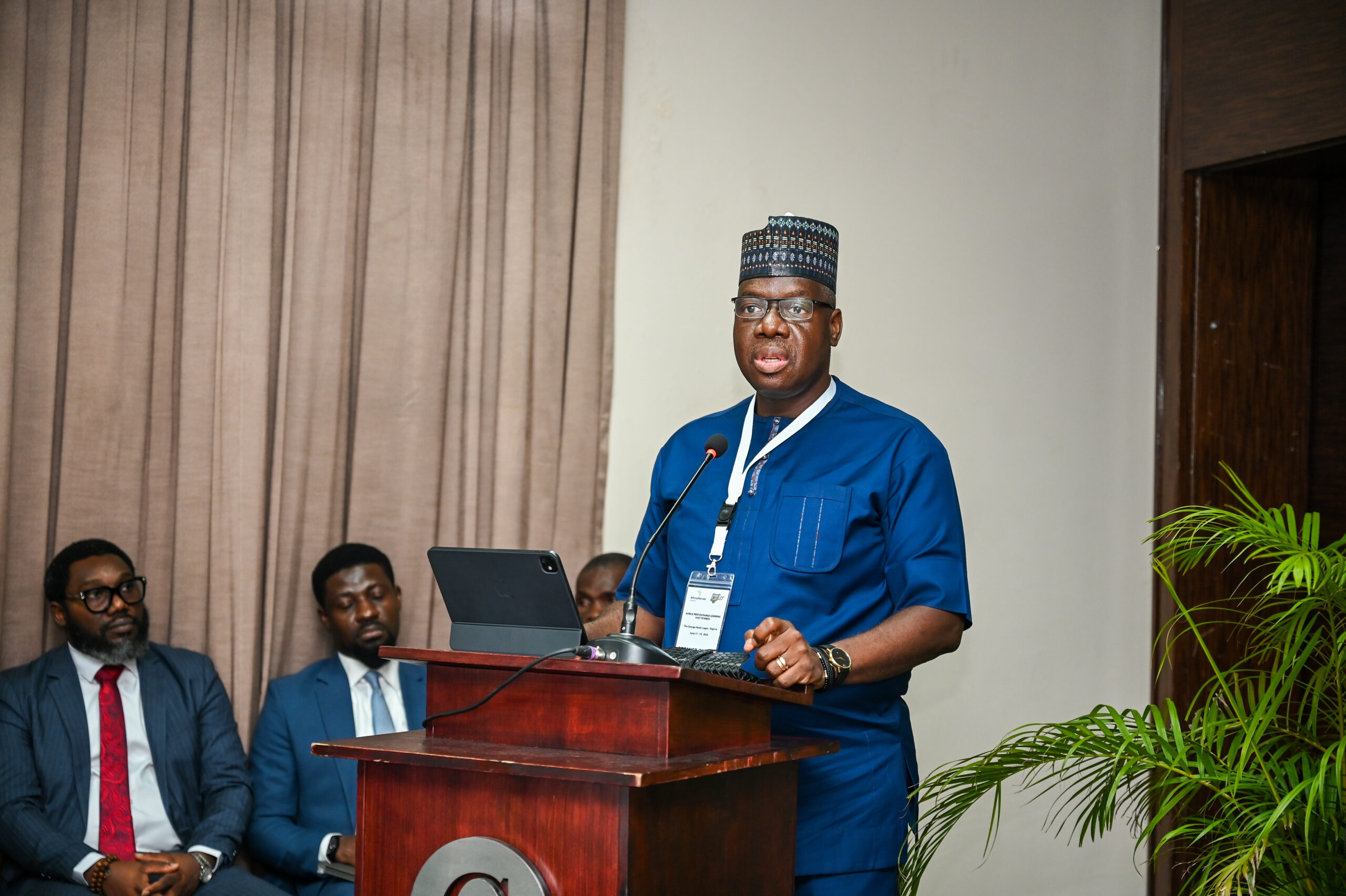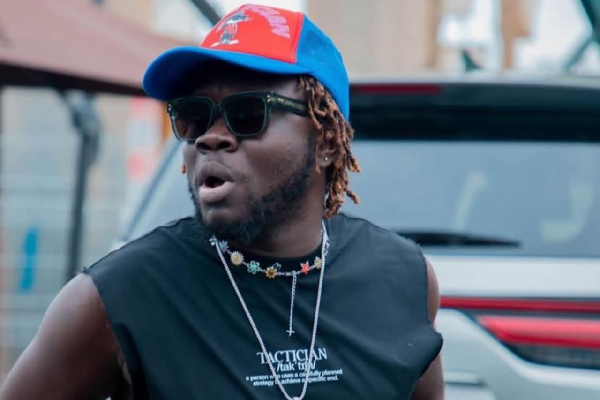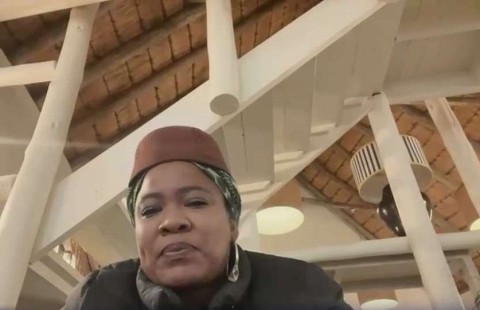In the heart of Sub-Saharan Africa, a quiet but profound conflict is unfolding, one that strikes at the moral and spiritual foundation of the continent. This is not a battle of borders or military might, but a cultural and ideological confrontation over who will shape the values of the next generation. At stake is the sacred and inviolable right of parents to raise their children in accordance with their beliefs — religious, moral, and cultural. This right is increasingly under threat, not from within, but from without. Powerful international organisations, backed by donor nations and philanthropic foundations, are inadvertently or deliberately advancing policies that undermine African identity, subverting parental authority and threatening to sever the generational links that bind societies together.
This is the battle for Africa’s soul.
In African cultures, the upbringing of a child is not merely a parental task; it is a communal mission. Ubuntu is an African philosophy and worldview rooted in the idea that “I am because we are.” At its heart, it emphasises the interconnectedness of all people, the value of community and the importance of compassion, dignity and mutual respect. The Igbo of Nigeria say: “It takes a village to raise a child.” The Akan of Ghana say: “No one knows the beginning of a great man.” These proverbs reflect a worldview in which children are not the property of the state, but the precious responsibility of parents and especially the wider community. This view is deeply rooted in African spirituality. Whether Christian, Muslim or adherents of indigenous faiths, African parents believe that they are stewards of their children’s destinies, accountable not only to society, but to God. Their duty is to teach, to protect, to guide. In many African homes a parent’s blessing is of paramount importance.
International law affirms this sacred duty. This inalienable right is not granted by the state but recognised and respected simply by virtue of the natural bond that exists between parents and their children. Article 18 of the African Charter on Human and Peoples’ Rights states that the family shall be the natural unit and basis of society and that the state shall have the duty to assist the family, which is the custodian of morals and traditional values recognised by the community. Article 20 of The African Charter on the Rights and Welfare of the Child echoes this, recognising the foundational role of parents in the upbringing and development of children. Article 18 of the International Covenant on Civil and Political Rights (ICCPR) states that parents have the liberty “to ensure the religious and moral education of their children in conformity with their own convictions.” But these principles are now being tested, not by internal rebellion, but by external imposition.
Africa is the youngest continent on Earth and at a pivotal point in its history. With over 40% of its population under the age of 15, and a median age of just 19, Africa is not merely rising — it is erupting with potential. Its population — most of whom live in the sub-Saharan nations — is currently in the region of 1.2 billion and is projected to grow to exceed 2 billion people by 2050.
The continent’s youth therefore represents a battlefield for ideas and ideologies. Whoever wins the battle to shape their minds will shape the future of Africa. International institutions know this. For them, Africa not only poses developmental challenges, but a cultural frontier. In an era when Western societies are divided over gender identity, family structures, and moral absolutes, Africa’s more traditional values stand as both a contrast and a challenge. For this reason, global actors are investing heavily in the African education sector.
International “best practice” and advances in educational technology and methodology are, of course, to be welcomed. Unfortunately, in some instances, this apparent generosity is not merely designed to improve literacy or expand opportunity, but to introduce a new moral framework. Programmes that present themselves as inclusive or progressive often carry with them a set of values that are foreign to and at odds with African worldviews. The danger of these programmes is that younger children are more susceptible to imbibing and adopting the value system that is being taught. This reflects a broader trend of international influence overriding local beliefs. It is the “new” colonialism — cultural imperialism behind a benevolent guise.
Perhaps the most controversial example of this cultural export is Comprehensive Sexuality Education (CSE). Developed and promoted by agencies such as UNESCO, UNFPA, UNICEF, and various Western governments, CSE claims to provide children with accurate, age appropriate information about sexuality, consent, reproductive health, and gender identity. In practice, however, many CSE curricula go far beyond biology or safety. They introduce children as young as six to discussions on masturbation, transgender identities, same-sex relationships and sexual pleasure. The curriculum is obsessed with sexual rights rather than sexual education. Some modules see traditional beliefs as limiting or repressive and encourage students to question gender norms and explore their sexual orientation.
These programmes are highly contentious because they undermine the traditional role of parents in guiding their children’s moral and developmental upbringing. In South Africa, the Department of Basic Education (DBE) piloted its revised CSE content in five provinces, after which a 2019 Midline Report was compiled. This report focused on the attitudes and perceptions of parents and teachers regarding the content and concluded that “traditional values” are “key barriers” to CSE’s implementation. It highlighted that teachers said they were not comfortable teaching the content. However, instead of changing the content to fit South Africa’s cultural context, the report labelled these serious concerns “cultural taboos” and called for actions to sensitise parents and teachers to accept values that they see as “out of the norm”.
Furthermore, studies conducted by the Institute for Research and Evaluation in 2018 and 2019 (which use UNESCO’s own data) concluded that “school-based CSE … does not support UNESCO’s claim that [its CSE programme] is effective. In fact, UNESCO’s own evidence indicates that CSE in school settings has shown little success and may be doing more harm than good.” For example, 27% of African school-based CSE programs found negative impacts, where learners became sexually active earlier, and had more sexual partners. There was a subsequent increase in STD infections, paid sex and rape, and a decreased rate of condom use.
Another current example in South Africa is the conflict over the Early Childhood Education (ECE) Toolkit, a teacher training programme implemented in state pre-primary and primary schools with the support of funding from VVOB, a Belgian-based organisation. This Toolkit introduces complex and controversial gender ideologies at an age when children are most impressionable. For example, it states that “both sex and gender exist across a continuum of possibilities.” It says that state-trained teachers must “[ask] learners from a young age for their preferred name and pronoun” and to use “they” and “them” to “let children know that we cannot assume someone’s gender identity just by looking at them.” It says that teachers should ensure that “children have access to toilet facilities that correspond with their gender identity.”
A cross section of the faith community, representing over 20 million believers, is challenging the DBE, arguing that this creates a transgender affirming culture among young children. The faith coalition are demanding that the DBE abides by its own policy and halts this teacher training until it has been opened for meaningful public engagement, particularly by parents and school governing body (SGB) associations. It is pushing for the establishment of a Family Values Unit within the DBE to ensure respect for parental rights and children’s rights so that true diversity, inclusivity and equity are properly considered and integrated by the DBE when developing similar toolkits, guidelines and protocols for application in public schools and ECD centres.
For many in the faith community, this initiative represents not just an educational shift, but an existential challenge to foundational African values rooted in family, faith and biological reality. In most African societies, such content is shocking, not because of ignorance, but because of conviction. The African view of childhood is that it is a time of innocence and moral formation. Children are not mini-adults — they are the next generation in need of guidance and assurance in how to make sense of the world. To sexualise them prematurely is not enlightenment; it is exploitation.
So how do these policies, conceived in global offices thousands of miles away, become law in African nations? The process is complex, but deliberate. It begins with the crafting of global policy frameworks at organisations like the United Nations or the World Health Organisation. These frameworks are often couched in the language of rights, equity and science — terms that are difficult to oppose without seeming ignorant or regressive.
Next, these frameworks are introduced to African governments through regional bodies such as the African Union or the Southern African Development Community (SADC). They are then embedded into national strategic plans through ministries of health or education and backed by gender commissions. Often, these plans are linked to significant financial aid packages or development grants. Civil servants –sometimes supported or pressured by internationally-funded activist organisations — become the local implementers of foreign ideologies. Parliaments may be bypassed. Public consultation may be minimal. And by the time communities realise what has changed, the policies are already embedded in law and entrenched in curriculum. This is how sovereignty is eroded — not by force, but by funding. Aid has long been a lifeline for many African nations, but today that lifeline may also be a leash.
Donor countries and philanthropic giants often encourage or require recipient countries to align with “international best practices” as a condition for aid, particularly in areas related to gender identity and adolescent health. The Education Plus Initiative in Sub-Saharan Africa, led by UNAIDS in collaboration with UN Women, UNESCO, UNFPA, and UNICEF, aims to empower adolescent girls and young women through education and related support services. However, it includes delivering comprehensive sexuality education, promoting access to sexual and reproductive health services. In Nigeria, efforts to integrate comprehensive sexual education faced resistance, necessitating curriculum adjustments to align with both donor expectations and local cultural norms. In Malawi and Zambia, policies regarding minors’ consent for reproductive health services have been critiqued for lacking clarity, potentially hindering access to essential services and affecting the countries’ eligibility for certain aid programs.
This dynamic creates the climate for moral compromise. African governments, desperate for resources, must choose between honouring their people’s values and securing donor support. Local NGOs face similar dilemmas: those that echo Western priorities receive grants, platforms, and protection; those that defend traditional values are marginalised and starved of financial support. The result is a kind of ideological neo-colonialism, where the price of “progress” is cultural submission.
Fortunately, resistance is rising. Across the continent, a new generation of leaders, parents and faith-based organisations is pushing back. In Nigeria, coalitions of Christians and Muslims have joined forces to oppose CSE and protect faith-based education. In Zambia, the National Assembly has debated laws that reaffirm parental rights and religious freedom. In Malawi, grassroots movements have mobilised communities to reject donor-funded programmes that conflict with local norms. And in Kenya, parent-teacher associations are demanding transparency and choice in educational content. This resistance is not anti-progress. It is pro-dignity and pro-family. It does not seek to insulate Africa from change, but rather to ensure that change is rooted in local wisdom and communal values.
At the same time, there is a growing awareness that Africa is not merely on the receiving end of global culture — it has something valuable to offer in return. In a world increasingly fragmented by identity politics, moral confusion, and spiritual emptiness, Africa’s emphasis on family, faith, and community provides a powerful alternative. The Western world is beginning to experience the consequences of value drift: declining birth rates, rising mental health crises, disintegrating family units, and a deepening sense of alienation. In contrast, African societies — despite economic challenges — retain a sense of meaning, connection, and moral clarity. If protected and nurtured, Africa’s values could serve as a beacon, not just for Africans, but for a world searching for a moral compass.
However, to preserve this legacy, African leaders must take bold and immediate steps. One priority is to affirm parental rights, which are an integral part of the right to religious freedom. There must be a robust defence and recognition of the principle already enshrined in law — that parents are the primary educators of their children, especially in moral and religious matters. Education departments need to recognise the important role of faith-based institutions as vital partners in moral formation and social stability. National guidelines must be established to ensure donor funds do not override cultural integrity or national sovereignty.
In the education sector in particular, there must be an insistence on transparency and a requirement that all education programmes — especially those funded by foreign donors — undergo public consultation and parental review. There needs to be a concerted effort to localise and contextualise the educational curriculum. International agencies and donors may believe that they are “helping” Africans by enlightening them so that they can abandon their ancestral ways and embrace Western progressive values. However, instead of a colonial mindset which seeks to impose their worldview, they should collaborate in the development of content that reflects African values, histories, and religious traditions, rather than the wholesale importing of foreign frameworks.
Africa stands at an historic crossroads. With its youthful population, rich spiritual traditions, and deep communal bonds, it has the opportunity to chart a different course — one that honours real progress without abandoning principle. This will not happen by default. It will require leadership. It will require parents, pastors, educators, and policymakers to resist the seduction of foreign approval and funding and instead fight for the moral future of their children.
The battle for Africa’s soul is real, and it is a battle worth fighting, because a continent that forgets its soul loses more than culture. It loses its future. However, if fought with wisdom, courage and compassion, this generation could revive global respect for cultural diversity and moral conviction. If Africa can resist ideological colonisation and remain true to its heritage, it has the potential to lead the world and reclaim what the West has largely lost: a society anchored in faith, family and the enduring wisdom of tradition.
:
: https://www.youtube.com/gatewaynews100
COMMENTING GUIDELINES
You are welcome to engage with our articles by making comments [in the Comments area below] that add value to a topic or to engage in thoughtful, constructive discussion with fellow readers. Comments that contain vulgar language will be removed. Hostile, demeaning, disrespectful, propagandistic and off-topic comments may also be moved. This is a Christian website and if you wish to vent against Christian beliefs you have probably come to the wrong place and your comments may be removed. Ongoing debates and repetitiveness will not be tolerated. You will also disqualify yourself from commenting if you engage in trolling.













